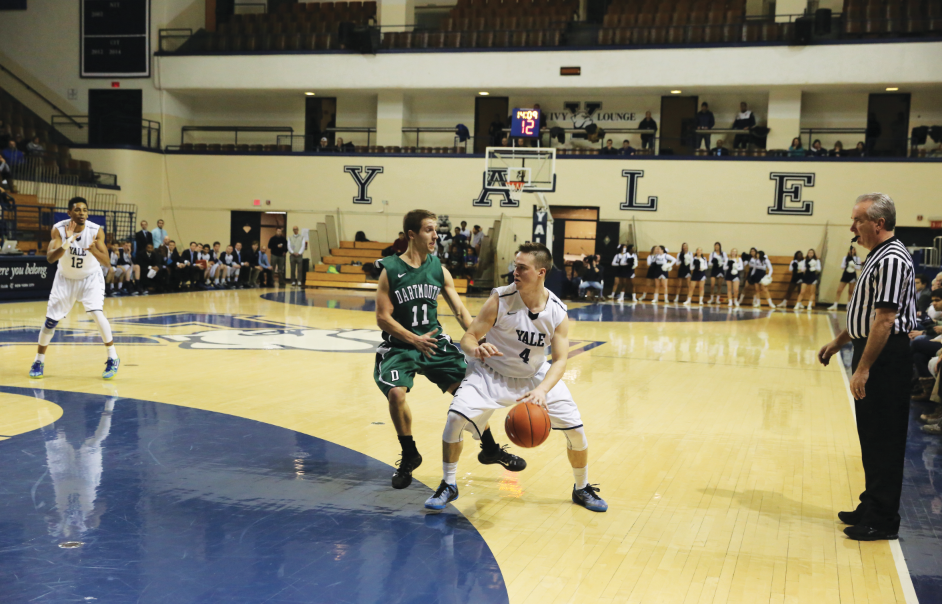
On Sunday afternoon, attorneys for former men’s basketball captain Jack Montague filed a motion for a preliminary injunction to request that the United States District Court for the District of Connecticut reinstate Montague as a student at Yale in order to complete his degree. The motion comes after a monthslong period of discovery, wherein both parties shared and obtained new information regarding the pending lawsuit.
Montague was expelled in February after the University-Wide Committee on Sexual Misconduct found him guilty of sexual assault. He then filed a lawsuit against the University in June, claiming that he had been unfairly punished. The new motion — which was filed alongside an amended complaint — shifts the lawsuit away from punitive damages and focuses on Montague’s reinstatement as relief. The updated suit leans heavily on the “irreparable injury” done to Montague and his chances for further education and employment.
The preliminary injunction essentially returns the two parties to the “last peaceable uncontested status existing between the parties before the dispute developed,” according to the motion. In this case, Montague’s counsel is requesting that their client be allowed to complete his undergraduate degree.
“Jack Montague was expelled during his last semester of his senior year,” Karen Schwartzman of Polaris Public Relations, who represents Montague and his lawyer Max Stern, told the News. “He seeks reinstatement to complete his studies.”
University spokesman Tom Conroy said Yale will be filing a response opposing the plaintiff’s motion, adding that the University will stand behind its initial claim that the suit is “factually inaccurate and legally baseless.”
The motion states that though Montague may eventually receive financial relief, money alone cannot account for the loss of his senior year in college, the delay in completing his degree or the opportunity to start his career after graduation. Additionally, should Montague have to complete his undergraduate studies elsewhere, his record would contain either a gap or senior-year transfer, which he would have to explain to employers or graduate school admissions committees, thus revealing the sexual misconduct finding.
“Without a college degree and little to no chance of playing basketball professionally, my life is effectively on hold,” Montague wrote in an affidavit in support of the motion.
Furthermore, the new motion alleges that if the injunctive relief — which includes reinstatement and expunging “all reference to sexual misconduct” from all of Montague’s records under University control — is not granted, Montague will not graduate from college nor enter a postgraduate degree program. The plaintiff will also not have similar employment opportunities to those he would have had with a Yale or postgraduate degree. According to the motion, Montague has not been able to gain employment as a basketball player, despite “diligent efforts,” because his expulsion deters scouts and agents.
Similar reasons have stonewalled his attempts to transfer to another school.
“Because Jack was expelled and has that on his record, he has not attempted to enroll at another university,” Schwartzman said. “I think it is fair to say that attempts to do so would likely be futile.”
In his affidavit, Montague states that, if reinstated, he is also willing to take online classes to complete the remaining five credits — one of which is his senior thesis — he needs to graduate from Yale.
And the amended complaint filed along with the motion of injunction contains several new additions and clarifications when compared to the initial June complaint. For example, the new complaint alleges that Montague never received training from the Sexual Harassment and Assault Response & Education Center on sexual harassment, gender sensitivity or any topic related to sexual relationships or sexual consent — contrary to the evidence used in the UWC proceedings that led to his expulsion. According to the lawsuit, after a 2013 incident labeled “UWC I” in the document, Montague was found guilty of sexually harassing a female student after putting a paper plate down her shirt when inebriated. Montague received SHARE training as punishment for that incident.
However, according to the new complaint, his meetings with the SHARE counselor were “very casual” and lasted “no more than five minutes” after Montague explained the incident in their first meeting.
Therefore, one of the new allegations in the complaint argues that taking the UWC I reprimand into account when determining Montague’s punishment in the final UWC proceedings was an example of “arbitrary and capricious decision making,” because that panel “erroneously” took into account Montague’s UWC I sanction.
There is no precise timeline for the U.S. District Judge Alfred Covello’s ruling on the preliminary injunction.







